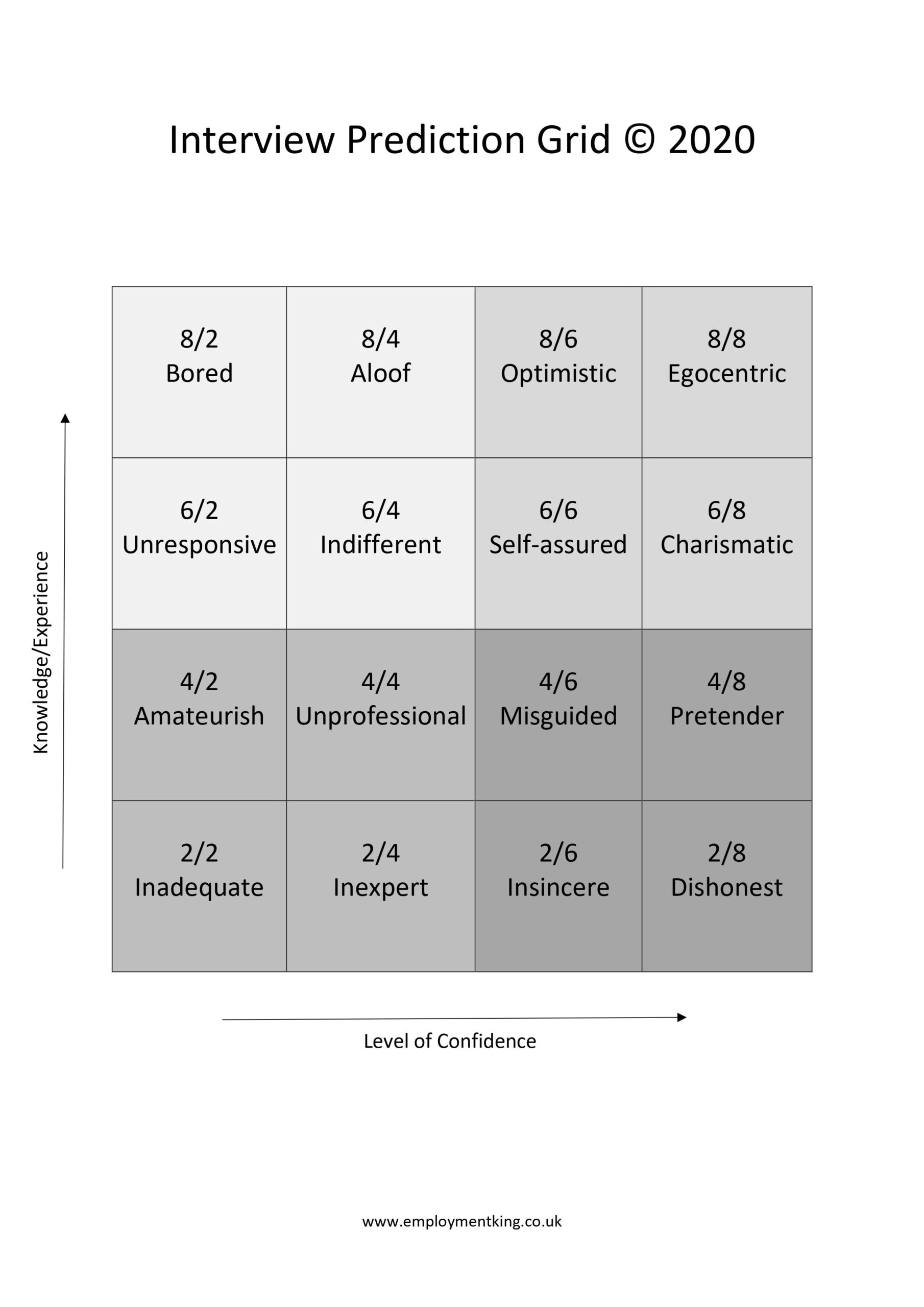Congratulations on completing the Interview Prediction Grid Test (IPG) ©2020.
Below is a breakdown of your Interview Identity
6/4 – Indifferent

Possessing a medium level of knowledge/experience make applicants more employable as the candidate will possess a wealth of industry experience. During the job interview, they are able to identify the required criteria for the desired position, therefore give suitable high-scoring answers.
A sufficient level of confidence allows some good answers to come through, highlighting the applicant’s knowledge/experience, but this level of quality answer is sporadic.
The result of the sporadic level of quality answers, some detailed and others lacking substance, comes across as if the applicant aren’t interested in the position for which they are applying. The 6/4 – Indifferent applicant can have success if the good answers are for the key criteria interview questions.
Those 6/4 – Indifferent interviewees often perform well when all the interview questions relate easily to their direct experience. When questions are framed outside of their area of expertise, or when challenged on a technical point, the applicant will struggle to reply confidently which affects the employer’s perspective of their employability value.
Strengths
Being confident enough to share experiences as part of an interview answer helps to showcase the medium level of industry knowledge/experience.
The knowledge level comes across as strong when applicants discuss, in detail, the sector models and theories they utilise during business as usual tasks. In fact, if all questions, and therefore the essential job criteria, relate directly to the applicants’ experience, they are likely to be offered the position.
As highly accomplished workers with up to 10 years’ industry experience, they would have previously dealt with many unforeseen situations, giving them a diverse level of skills that can be utilised within a variety of sector roles.
The pre-interview impression, the halo effect, is often strong especially for applicants who have gained a wide range of skills over an extensive career history. The positive impression created can positively influence the post-interview scoring process.
Development
Familiar subjects may be easy to discuss, highlighting the applicant’s unique selling point, but the sufficient level of confidence increases the amount of unpromoted self-disclosure of weaknesses. It is the constant referencing of weaknesses that decreases the final overall interview score.
Likeability comes from an employer’s initial assessment of the applicant’s interpersonal skills, as well as their perceived intelligence. If an applicant is nervous at the interview start, creating a weak assessment, rapport can be low creating an uncomfortable interview.
Low self-esteem can also increase awkwardness during silences when the interviewer is making notes. Interruptions or random comments, irrelevant to the job interview, can be annoying or at worst can weaken the perceived character of the applicant.
Learning the skill of only stating important facts relevant to the job criteria improves the perceived level of confidence and competence. The rule of ‘less is more’, in the case of self-disclosure weakness and interruptions, can remove negative associations that come from verbal diarrhoea.

Advice for the job interview
- Start the majority of interview answers with a confirmation statement, “Yes, I am very experienced in …” Confirmation statements increase the perception of confidence and decrease the use of filler words during the start of an answer
- Imagine that you have to explain business-as-usual tasks to a new employee, not an interviewer. This will result in an in-depth step-by-step answer referencing all the required criteria
- End the interview answer expecting a silence. Once ended, look up at the interviewer and wait for the response, which helps to switch the power balance
Research: IPG













